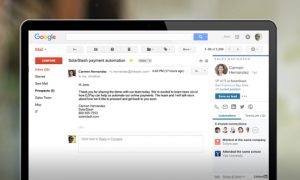Records show that companies spent more than $ 380 billion on HR tech in 2018, which represents a 9.5 percent year-over-year increase. Experts expect this increase in HR tech spending to continue to rise well into the future. With increased demand comes an onslaught of new tech products on the market. Today’s employers must be savvy enough to filter through the array of options and find the right technologies to enhance HR functions in their workplaces.
What is HR tech?
In basic terms, HR tech consists of various software applications that help to improve HR processes within the company. HR departments use technology for everything from employee management to talent acquisition to employee payroll, and everything in between. The primary goals of HR tech are to streamline HR practices, cut costs, boost employee engagement, and improve outcomes.
Emerging HR tech trends
In order to determine which HR technologies are right for your business, it’s important to first understand emerging trends and how these trends can improve effectiveness. Here’s a look at the top five HR tech trends to look out for in 2020 and beyond.
1. Cloud migration
Companies have been transferring data management to the cloud for several years and now this process includes the transfer of HR data management. In fact, according to the 2017 PwC Global HR Technology Survey, more than 70 percent of companies now manage at least one HR process in the cloud. As cloud security has improved and the demand to collect, store, and track massive amounts of data, it makes sense that more and more companies are turning to cloud migration. This step avoids the need to store this data in-house.
2. Active listening
While technology can make managing employees more efficient, it’s important for employers to maintain a human element. Active listening through tools, such as chatbots, pulse surveys, and check-ins can improve engagement in the workplace by allowing employees to provide feedback quickly and effectively. Also, HR active listening tools give employers the power to go well beyond the standard annual survey to obtain real-time, consistent employee feedback.
Emerging technology doesn’t only collect employee feedback, but it helps employers act on this feedback by providing next step prompts and keeping everyone up to date as to the status of the feedback. Integrating active listening technology into HR practices enables employers to improve employee engagement throughout the workplace.
3. AI and machine learning
Companies have been collecting employee data for years. Now, thanks to AI (Artificial Intelligence) and ML (Machine Learning), employers can analyze this data and use it to make real and meaningful change in the workplace. For example, employers can monitor employee emails and in-house communication tools to find ways to improve team collaboration.
AI and ML technologies go even further by providing push prompts to company leaders, managers, supervisors, and even employees. For example, supervisors may receive push prompts that recommend various training programs for their teams. Or, employees may receive notifications that encourage them to take a break after hours of nonstop work. The goal of this type of push prompt is to improve productivity across the board.
4. Employee recognition
According to Gallup’s recent State of the American Workplace report, enhancing employee recognition in the workplace can improve quality, reduce shrinkage, and decrease absenteeism. To achieve results like these, however, employee recognition must go well beyond the annual performance reviews. Today’s employers want real-time recognition and rewards. The reality is that employers must embrace emerging technology if they want to provide the high level of recognition and rewards that today’s employees have come to expect.
An advanced employee recognition platform enables both manager-to-employee and peer-to-peer recognition. Your employees can receive real-time recognition on a daily basis and quickly participate with one-click recognitions. In addition, recognition software makes it easy to celebrate birthdays, work anniversaries, and other special events. HR tech can also track employee recognition activity, giving you real-time insights on user activity and overall program performance. As HR tech continues to advance, it will make managing employee recognition and rewards more efficient.
5. Dedicated HR tech roles
This increase in HR technologies is forcing employers to onboard HR staff with IT experience. In fact, many companies have created a dedicated HRIT (Human Resources Information Technology) role within the company. The need for these advanced skills in the HR department will also intensify in the coming years.
Having a separate IT department will not be enough. Employers must ensure that IT-knowledgeable staff is a core part of the HR team. This step will make sure that your company is not just integrating any type of technology into the HR processes, but that they are investing in the right type of HR tech.
It’s important for companies to make HR tech a priority. After all, HR effects nearly all aspects of the business. With the right technology in place, your HR team can do more with fewer resources and less time. This, in turn, can improve productivity, cut costs, boost sales, and ultimately improve the company’s bottom line.
Are you curious about what the future holds for HR professionals? Discover what today’s leading CHROs and executive HR leaders are saying about the future of employee engagement in our latest white paper.
Business & Finance Articles on Business 2 Community
(18)
Report Post




